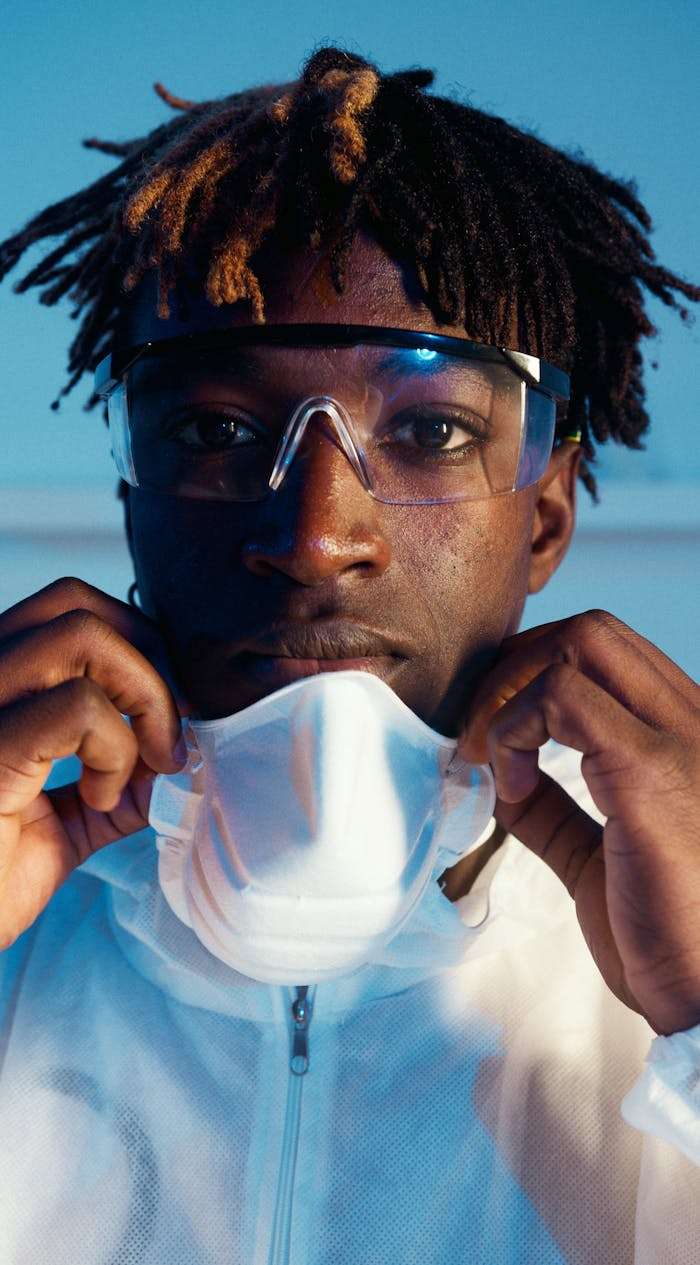AI in healthcare is changing the game, Imagine a world where diseases are caught before you even feel sick, where your treatment fits you like a glove, and where we crack the code to living longer, healthier lives. This isn’t science fiction—it’s happening right now, thanks to Artificial Intelligence (AI) in healthcare. AI is shaking up healthcare in amazing ways, and one of its biggest promises is helping us live longer. In this blog post, we’ll dive into how AI is revolutionizing healthcare and extending human lifespan, step by exciting step.
Early Detection and Prevention

AI is changing the game when it comes to catching diseases early. It can sift through mountains of data—like X-rays, MRIs, or patient records—faster and more accurately than any human. This means spotting trouble before it becomes a big problem.
Take cancer, for example. AI is being used in radiology to find signs of disease that might slip past even the sharpest eyes. A great case is the AI model from Google Health and DeepMind. According to a study published in Nature, this AI beats human radiologists at spotting breast cancer in mammograms, cutting down on missed diagnoses and false alarms. Catching cancer early can mean better treatment and a longer life. That’s AI in healthcare making a real difference.
Personalized Medicine
Ever wonder why some treatments work for others but not for you? AI is fixing that with personalized medicine. Instead of a one-size-fits-all approach, AI looks at your genes, lifestyle, and health history to create a treatment plan just for you.
In cancer care, this is huge. Companies like Tempus use AI to study a patient’s tumor DNA and figure out which treatments will hit the bullseye. This tailored approach makes treatments work better and cuts down on nasty side effects. When you feel better and recover faster, it’s easier to live a longer, healthier life. That’s another win for AI in healthcare.
Advancements in Treatment
AI isn’t just about planning—it’s also hands-on in treatments. Picture robotic surgeries where AI helps surgeons operate with pinpoint accuracy. These high-tech helpers mean smaller cuts, quicker healing, and fewer risks—all adding up to better health.
But AI goes further. It’s speeding up how we find new medicines. Normally, creating a drug takes years and tons of money. AI changes that by guessing how chemicals will work in our bodies. A cool example? Researchers at MIT used AI to discover halicin, a new antibiotic that fights tough, drug-resistant bacteria. New treatments like this can tackle diseases we couldn’t beat before, giving us more years to enjoy.
Understanding and Combating Aging
What if we could slow down aging itself? AI is digging into that too. It’s analyzing huge piles of biological data to figure out why we age and how to stop it.
Companies like Insilico Medicine are using AI to find drugs that target aging. They test thousands of possibilities in a flash, hunting for ways to keep us young longer. Plus, AI is combing through places like the UK Biobank to spot what makes some people live to 100 and beyond. These discoveries could lead to tips or treatments that help us all stretch our lifespans—and stay healthy while we’re at it.
Challenges and Ethical Considerations
AI in healthcare isn’t all smooth sailing, though. There are hurdles to clear. For one, AI needs lots of personal health data, and keeping that private is a big deal. Nobody wants their medical info leaking out.
Then there’s the question of fairness. Can we trust AI to make unbiased decisions? And if it messes up, who’s to blame? The World Health Organization (WHO) has highlighted the need for ethical guidelines to keep AI on the right track. Solving these issues is key to making sure AI helps everyone fairly and safely.
The Road Ahead
The future of AI in healthcare is bursting with possibilities. Soon, we might have AI that predicts health problems before they start, suggests ways to stay well, or even helps with mental health. Pair it with things like wearable fitness trackers or gene editing, and the sky’s the limit.
But to get there, we need to tackle the tough stuff—like privacy and fairness—together. Doctors, tech experts, and lawmakers all have a role to play. When we get it right, AI won’t just add years to our lives; it’ll make those years better, fuller, and happier.
Conclusion
AI is revolutionizing healthcare in ways that touch every part of our lives—from spotting diseases early to crafting perfect treatments and even slowing down aging. Its power to extend human lifespan isn’t just about more time; it’s about better time. As AI keeps growing, we’re stepping closer to a world where long, healthy lives are the norm. So, here’s to the future—AI in healthcare is leading the charge, and we’re all along for the ride!


